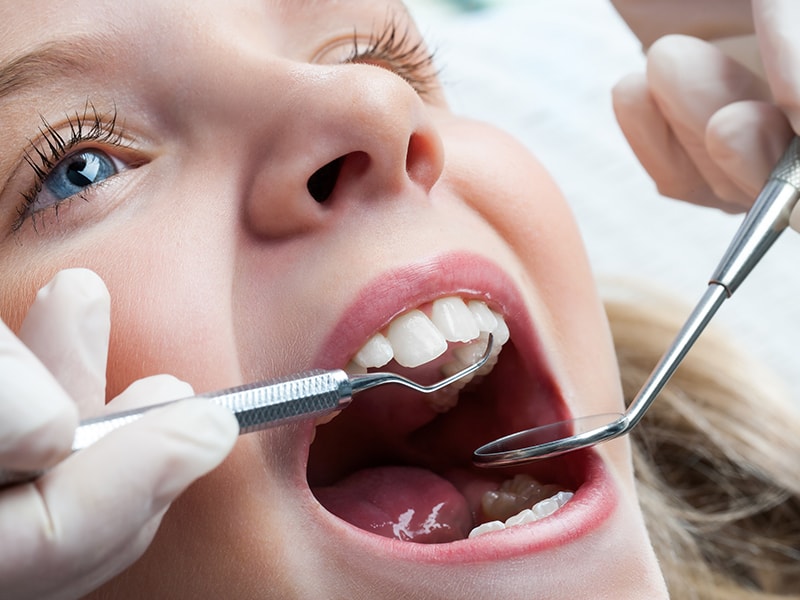Root Canals
A root canal is the space within the root of a tooth. It is part of the naturally occurring space within a tooth that consists of what is called the “pulp chamber” that connects the root to the surface.
- HOME
- DENTAL SERVICES
- Root Canals

Root Canals
A root canal is the space within the root of a tooth. It is part of the naturally occurring space within a tooth that consists of what is called the “pulp chamber” that connects the root to the surface.
There are two main techniques to filling a root canal: lateral condensation and warm vertical condensation. Although research is scanty, warm vertical condensation appears to have the advantage of more completely filling the tooth roots.
The purpose of a root canal dental procedure is to remove bacteria, nerve tissue and organic debris left over from the breakdown of nerve tissues within a tooth.
While a root canal can be painful, the experts at the Village Family Dental Office make sure that your root canal procedure as pain-free as possible. Root canals are successful about 90% of the time when they are done properly. Teeth that have had root canals can become brittle and are susceptible to fracture. TO match teeth, it is advisable to have a dental crown placed over a tooth that has had root canal to rebuild and protect it.
When is a root canal required?
Root canal treatment (or endodontics) is required when there is an infection deep within your tooth. The blood or nerve supply may be infected either due to an injury or a severe cavity. You may not experience any pain or discomfort during the early stages of an infection, however if your tooth changes color and darkens that is a sign that your tooth nerve is in danger of dying. If left untreated, this kind of infection can not only be very painful, but can lead to a tooth abscess or even tooth loss.
Five signs of infection:
1. Serious toothache when eating, or when you put pressure on the tooth. Does it hurt when you bite down hard?
2. Excessively sensitive teeth. Does the sensitive pain linger after the initial contact with hot or cold foods or drinks?
3. Darkening of your tooth. Has your tooth changed color? This may be a sign of the nerve dying.
4. A small bump on the gum, close to the painful tooth.
5.Tender or swollen gums around the tooth.
Why is it called a root canal?
The visible part of your tooth, above the gumline is called the ‘crown’. Below the gum, fixing the tooth to the jaw, is the ‘root’ of your tooth. The root canal system is a network that fills a central hollow area inside the tooth and down to the roots. Root canals are filled with loose connective tissue called ‘dental pulp’ and they are responsible for nourishing and hydrating the tooth, as well as reacting to hot and and cold.
When an infection takes hold, it is this pulp which becomes inflamed, which is why it may be painful to eat or drink. Eventually a bacterial infection will cause the pulp to die. It is important to see your dentist if you are experiencing toothache, as the infection will not go away of its own accord and antibiotics cannot be used to treat a root canal infection.
If left untreated, a deep infection can spread through the whole root canal system of your tooth. In this case, the pain may subside, as the infection will have removed all of the pulp.
What does treatment involve?
Root canal treatment removes all of the infection from the tooth, before sealing the tooth to protect the damaged nerve and restore you back to good oral health. Endodontic treatment is always carried out by a specialist clinician and an anesthetic is used to keep you comfortable through the process.
When you first come into your appointment, we will take an x ray to assess the status of the infection. Then a local anesthesia is administered to the area and a piece of rubber material called a ‘rubber dam’ is placed around the tooth the keep it dry and accessible throughout the procedure. Once you are fully anesthetized, your dentist will use specially designed tools to remove the infected tissue. Once it is clear, a rubber compound is used to fill the tooth where the root canal tissue previously was. This is usually finished with a temporary filling. This is the completed stage of your first visit to Long Beach dental group. Following this, we create a custom made crown to fit your tooth and this is fitted at your second visit.
How do I avoid a root canal?
Root canal treatment can be avoided by practicing good dental care. Regular visits to our long beach dental office for check ups mean that your dentist is in a good position to pick up on any problems you may not have noticed. They will check any current fillings or crowns for damage or cracks. By treating issues in the early stages you avoid infections and further complications that would ultimately lead to endodontic treatment.
Tooth decay is one of the common reasons for root canal infections. You can keep tooth decay at bay by brushing and flossing regularly, chewing sugar-free gum between meals and reducing the amount of fizzy drinks and sugar in your diet.
If you are experiencing tooth pain, contact Long Beach Dental Group at (562) 439-0494 today to see if you require root canal treatment.
OTHER DENTAL SERVICES IN LONG BEACH, CA
WHY CHOOSE LONG BEACH DENATL GROUP
High Standard of Dentistry
We provide the full spectrum of high quality dental care, from prevention to general restorative dentistry, cosmetic treatments, specialized care, and dental services all at affordable prices.
Committed Dental Team
Our excellent dental team is friendly, caring, and has years of experience as established clinicians.
Modern Equipment
Our practice is equipped with the latest technology that allows us to perform the most modern treatments. We only use the premium brand products from the leading manufacturers.
Tooth Extraction
The main goal of dentistry is to preserve your natural teeth and keep them healthy for as long as possible. There are times, however, when it is in your best interest (or your child’s) to have a tooth extracted (removed).
Need an Emergency Help?
Our entire team is dedicated to providing you with the personalized, gentle care that you deserve. Our commitment is to serving our patients including providing information that helps them to make more informed decisions about their oral health and ways to maintain their teeth and gums.
| Monday | 8:30 AM — 5:30 PM |
| Tuesday | 9:00 AM — 6:00 PM |
| Wednesday | 8:30 AM — 5:30 PM |
| Thursday | 9:00 AM — 6:00 PM |
| Friday | 8:30 AM — 5:00 PM |
| Saturday - Sunday | Closed |







